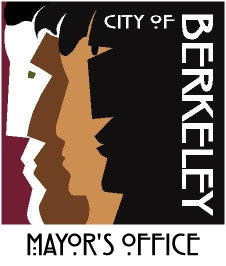City of Berkeley to Submit Amicus Brief in Opposition of Cap in University of California, Berkeley Enrollment
February 18, 2022
CITY OF BERKELEY TO SUBMIT AMICUS BRIEF IN OPPOSITION OF CAP IN UNIVERSITY OF CALIFORNIA, BERKELEY ENROLLMENT
City Council voted this morning to support the University’s position in Save Berkeley’s Neighborhoods v. The Regents of the University of California, to be decided by the California Supreme Court
BERKELEY – After an unprecedented decision by the California First Court of Appeal upholding a ruling by the Alameda County Superior Court to freeze enrollment at UC Berkeley, the Berkeley City Council voted unanimously Friday morning to authorize the submittal of an amicus brief. Shortly after Monday’s ruling, UC Berkeley announced it would file an appeal to the California Supreme Court. While the City is not a party to the lawsuit, filing an amicus brief will allow the City the opportunity to weigh in on this issue that has made national headlines which has major implications for the future of higher education in California.
“UC Berkeley is often a launchpad for upward mobility, helping first-generation and lower-income Californians build livelihoods, forge personal and professional connections, all of which help many give back to their communities”, said Berkeley Mayor Jesse Arreguín, a UC Berkeley graduate. “When fewer of our children are able to pursue higher education, we all lose out — our cities, our local businesses and the future of California.”
In July 2021, the City and University reached a historic agreement regarding its Long Range Development Agreement. In it, the University would pay the City $83 million over the next 16 years to address mitigations related to its impacts on the City. The funding will support fire and city services, and projects supporting residents within a half mile of the UC main campus and Clark Kerr Campus. In addition to the annual payment, the agreement calls for a stronger cooperative relationship including voluntarily honoring the City’s zoning standards in the design of off-campus projects, creating a collaborative planning process for projects in the City environs, among other issues.
During the 2020-21 year, the University had 42,347 students in enrollment, lower than the average of around 45,000 in previous years as a result of the COVID-19 pandemic. According to University data, this class was the most diverse yet, with the highest number of Latinx, genderqueer, and first-generation college students. The ruling, if upheld, would mean that at least 3,050 prospective students who would typically be accepted would have to be rejected from attending the world-class university. The reduction in enrollment would cost the University at least $57 million, impacting their ability to fund critical services, including financial aid for low and middle-income students.
While no decision would be expected by the State Supreme Court until later in the year, the University has requested a stay on the previous judgement while the appeal is being heard to allow qualified students the ability to attend the University.
###
